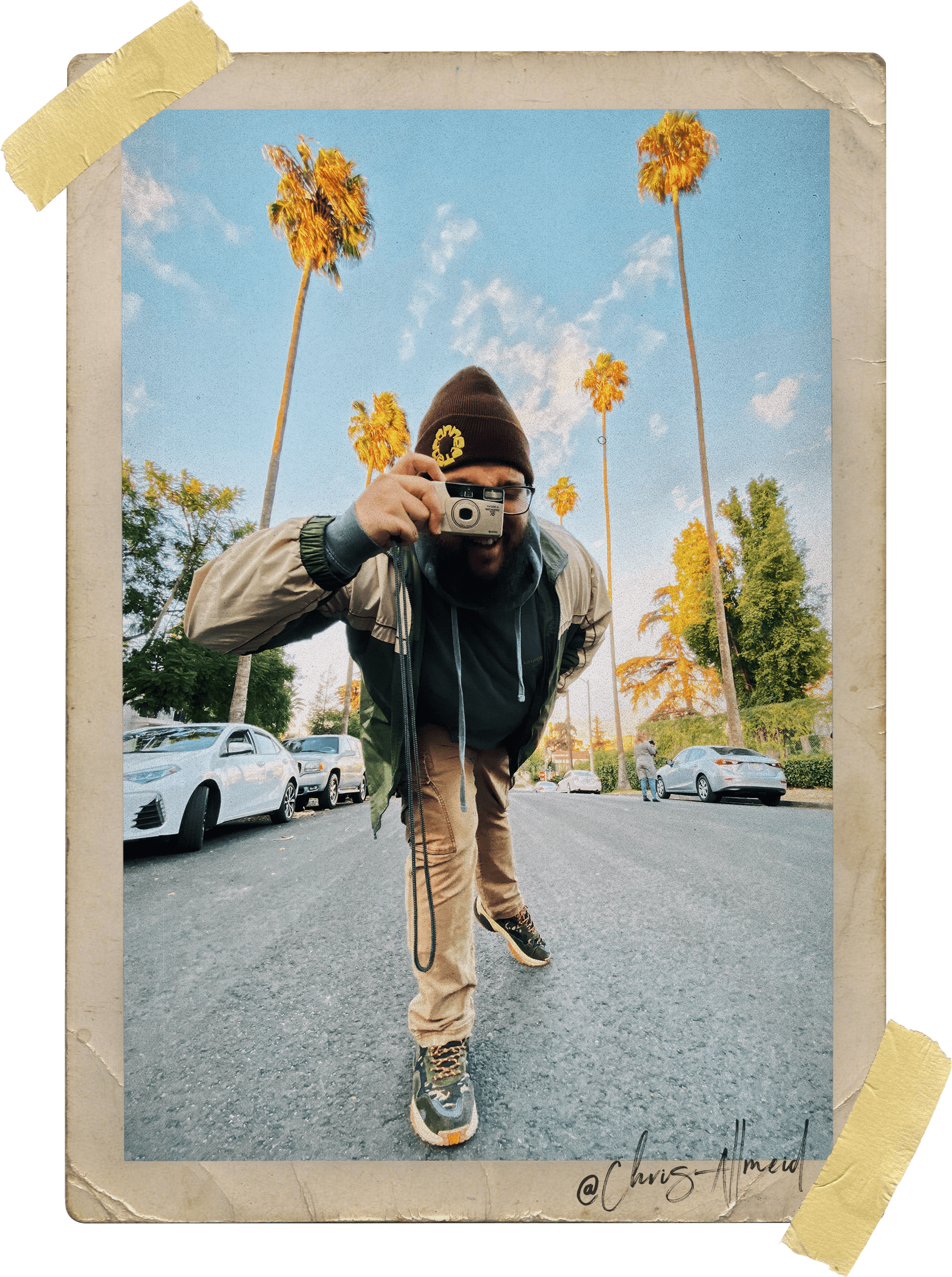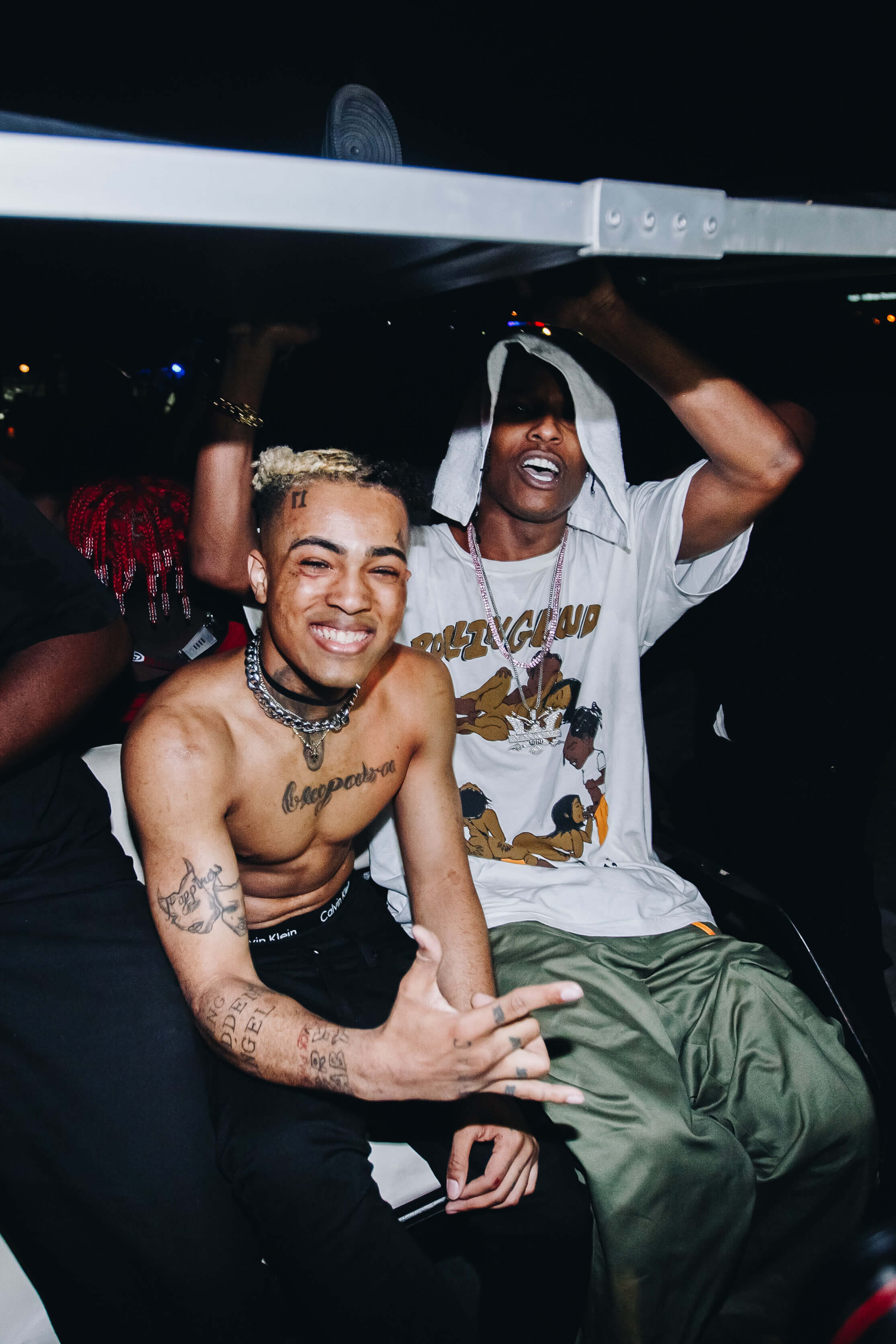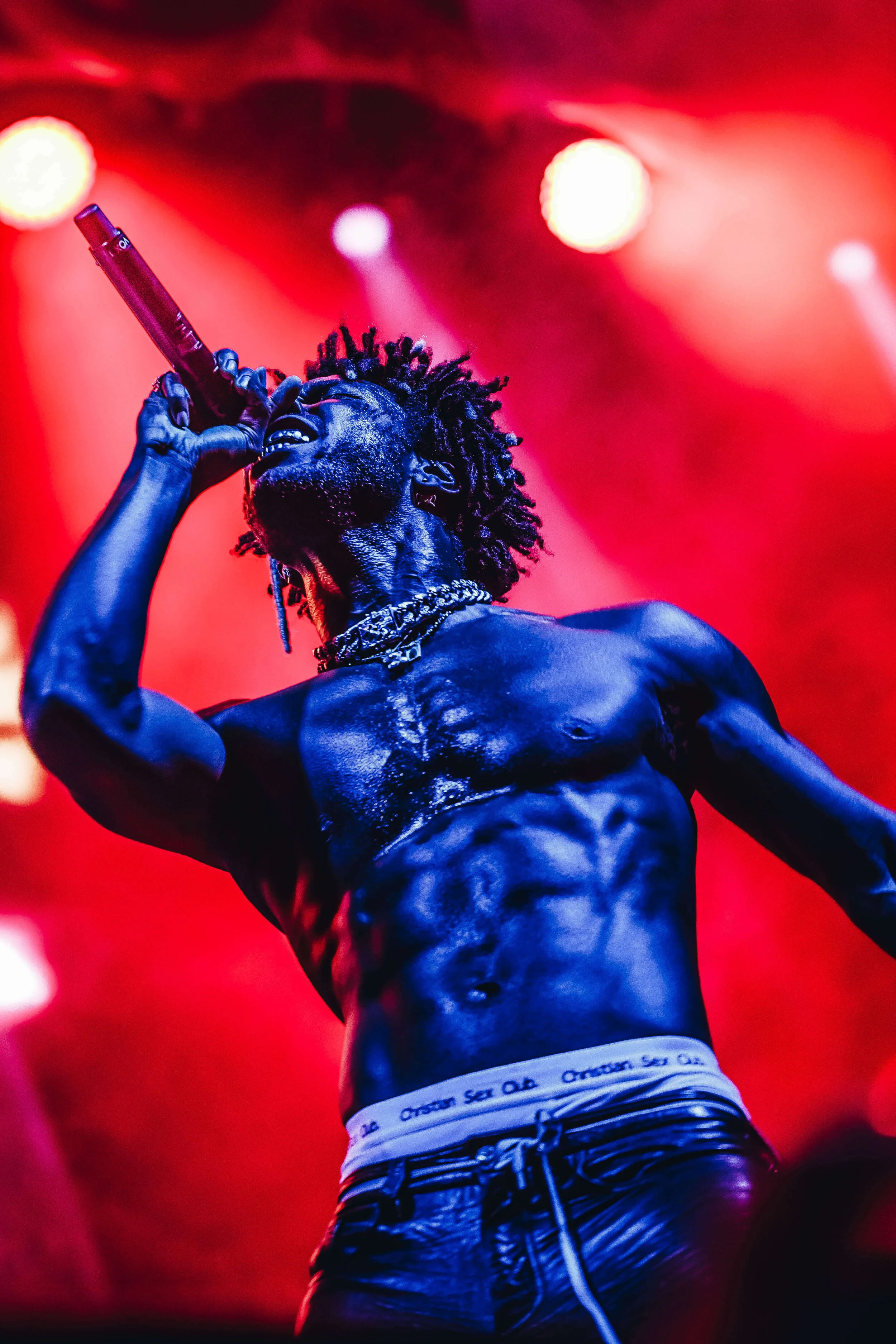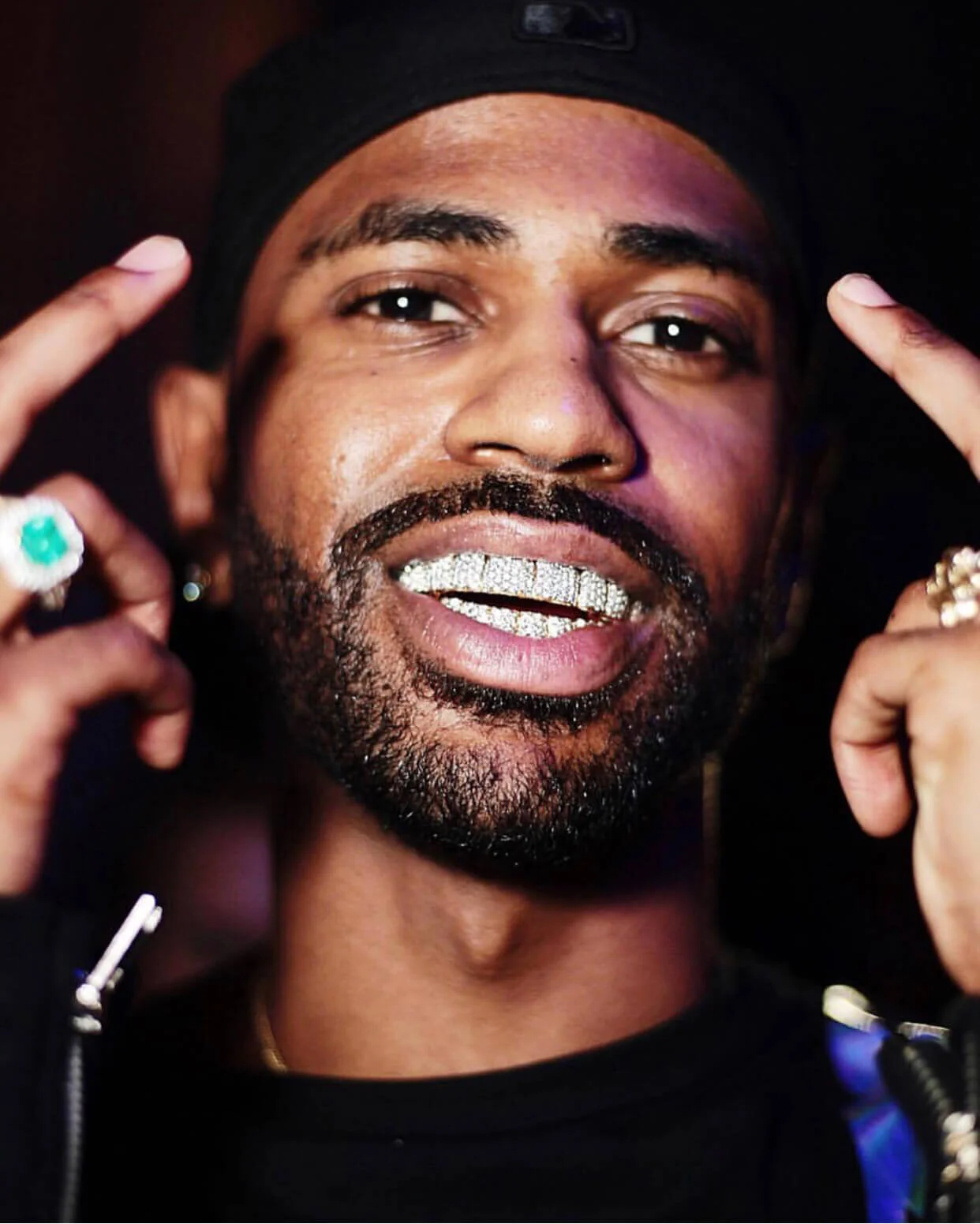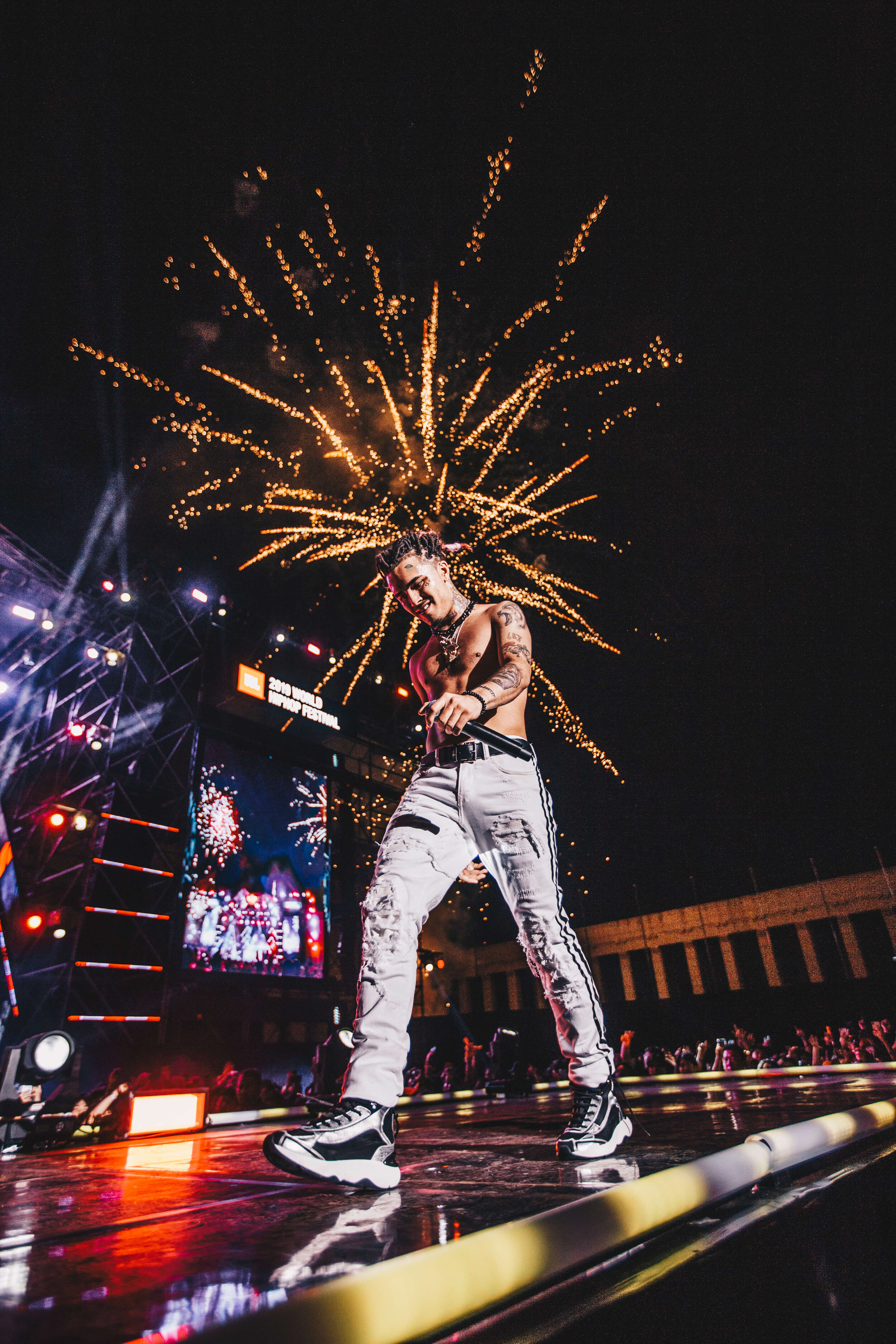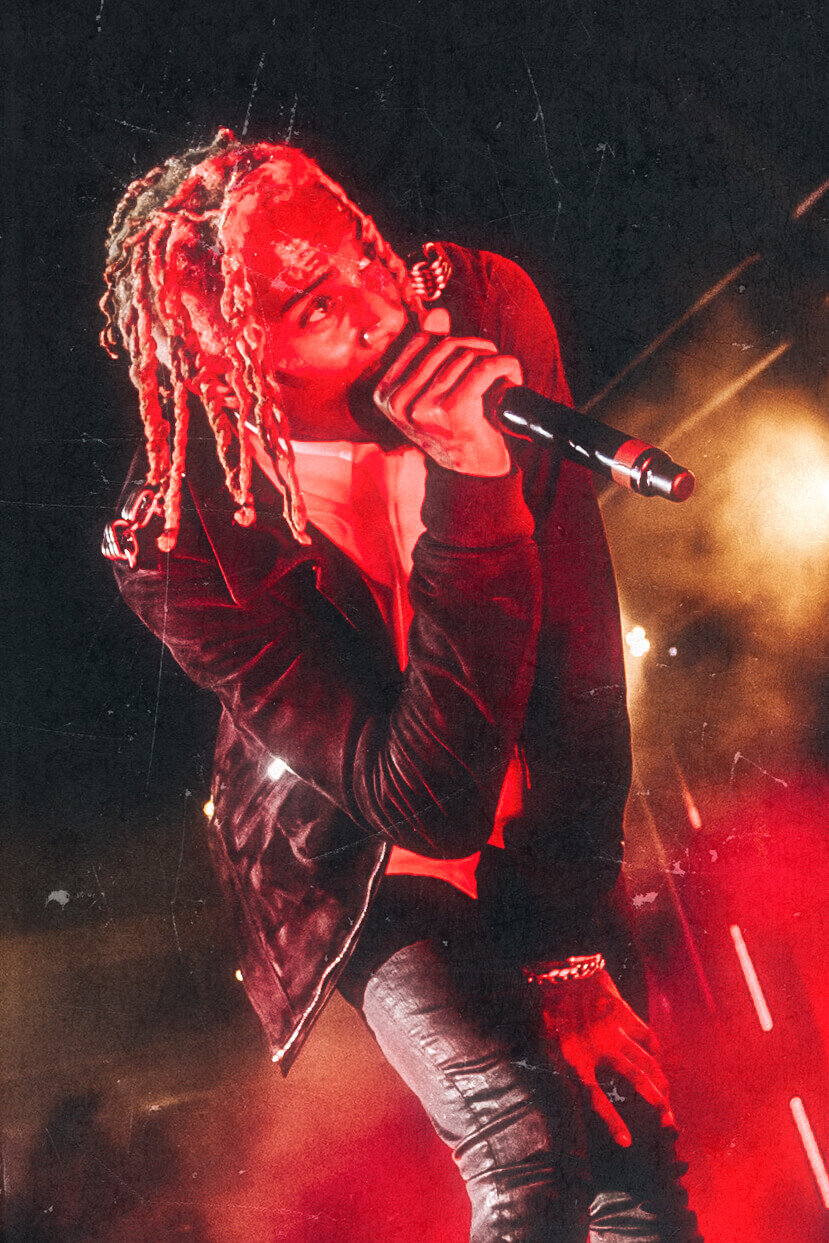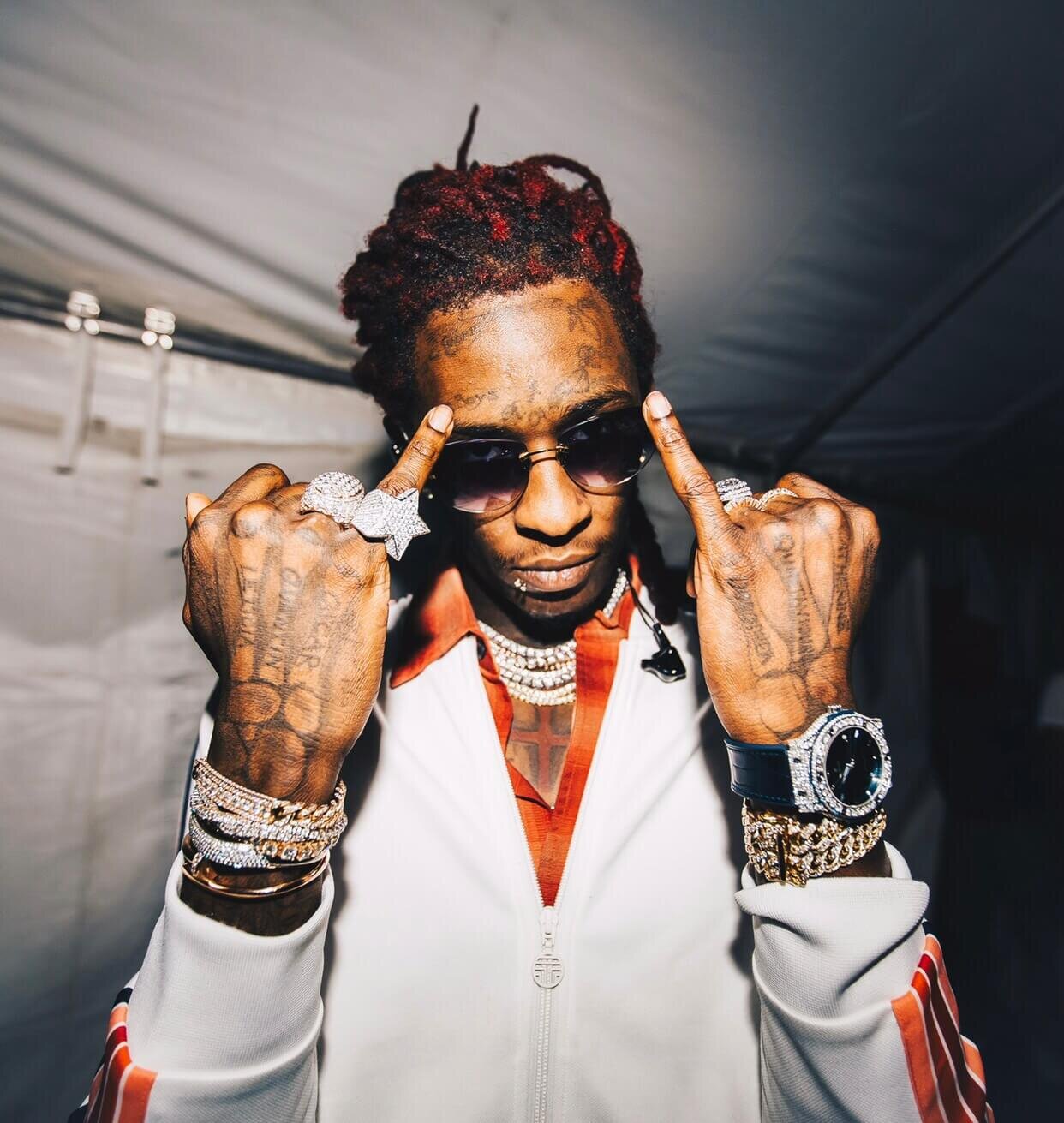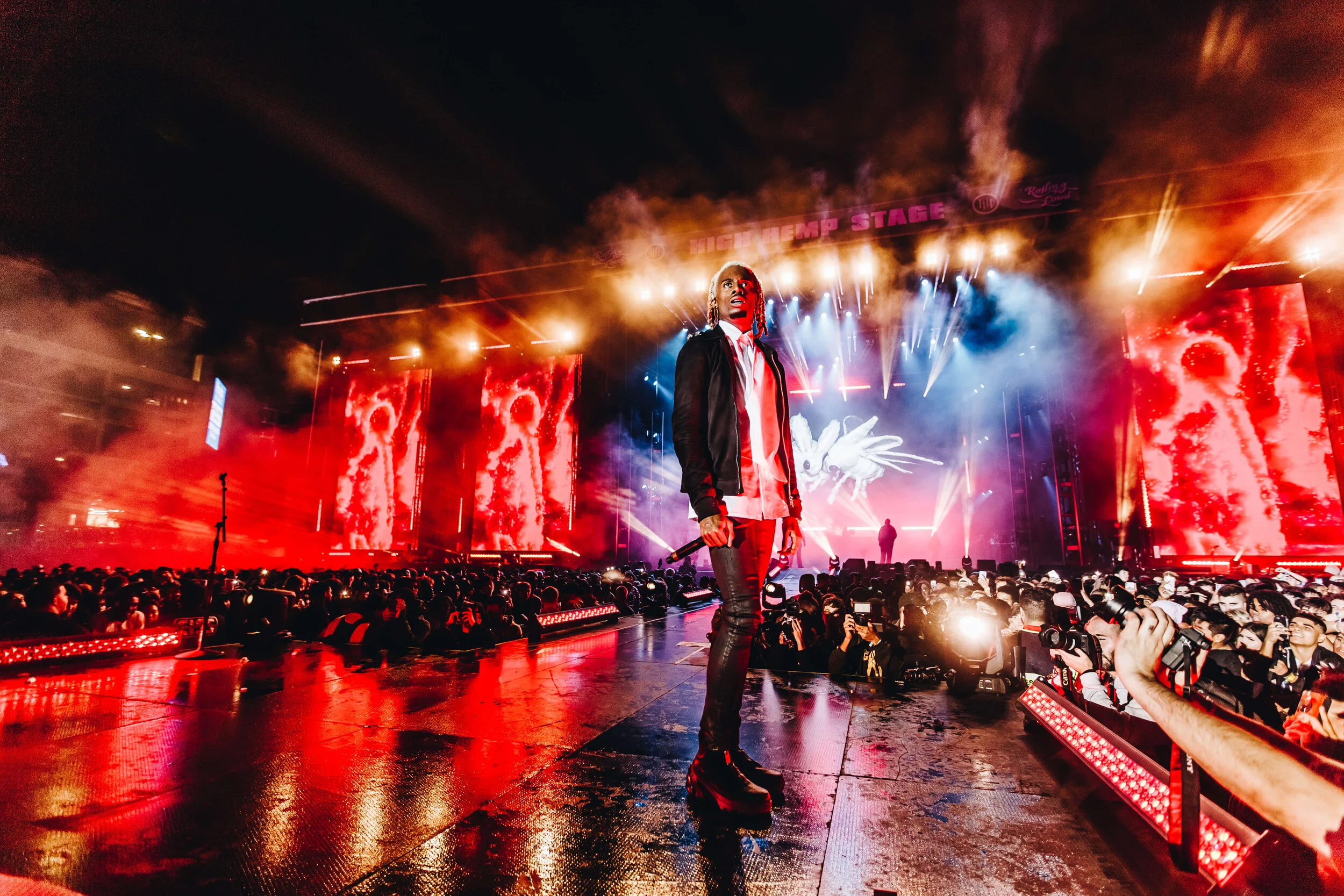Chris Allmeid
Plug your favorite rapper into Google and you’ll likely come across one of Chris Allmeid’s iconic photos. Type ‘Rolling Loud’ into any search engine on the internet and his work will show up in the top results. You could even scan YouTube for just about any rap song and find an audio-only video with his snapshots posted as the thumbnail.
It’s tough to grasp just how far these images have traveled, how ubiquitous and seen they are in all the cultures & subcultures of modern rap, hip-hop, and pop music. And it’s for one simple reason: Chris Allmeid’s photography makes you feel like you’re there. With all his photos, you’re in one place & one place only: the center of the action, the heart of it all.
Throughout his career, Chris has snapped photos disseminated so far and wide that they not only fuel the culture but help define it, adding a tangible piece to the personas of musicians we often only see from afar. His work is the creation of a mythology around the wild world of live music, and these are images that entice us into that world of festivals, parties and afterparties, music video sets and fashion shoots. (And damn does it look fun.)
His real-life come-up, meanwhile, reads something like a superhero origin story. With several years covering the Miami club scene under his belt, a teenage Chris would fly from Florida to New York City on weekends and literally knock on agency doors to get work as an up-and-coming fashion photographer.
These days, he’s determined to give back. Of all the hustlers in the media & entertainment industry, Chris makes a point to speak out in support of creatives. His social media is frequently filled with raw takes and practical advice, and he actively seeks to provide opportunities for rookie photogs whenever possible.
Our conversation a few weeks ago ran the gamut between his craziest moments on tour, the best ways to overcome anxiety & nervousness, and the future of the music photography business itself. Dive in.
You’re in the fray shooting music festivals these days, but I’m curious: is there anything you miss about your time in the fashion industry?
I miss being able to creatively direct photo shoots. I miss being able to put my vision in a photograph that I styled, found the location for, did the lighting for, etc. I do miss being that creative.
When you come into the music industry, everybody has their own creative director, stylist, all that. You’re just there for your job as a photographer or videographer, and everybody is basically just like, “Stay to yourself, don't speak on anything unless they call on you.” To be honest, it's really weird. It’s that whole, “Stay your course, don't go outside your boundaries” attitude.
At the end of the day though, I get it, because they hired all those people for all those roles, and they hired you for a specific job too. There's no need for you to go over there and step on anyone’s toes – it just causes problems and then there's miscommunication. There's a lot of evils in this industry too.
But yeah — I do miss fashion, where I used to be able to pretty much direct the whole thing. That's why I’m moving more into music videos, because I did appreciate creative directing so much. I want more of that.
You mentioned the Miami-area party scene is a vibe like no other — what made you want to head to New York City if Florida was so crazy/fun?
I grew up very conservative, so partying wasn’t even really a thing until I was at least 18 or 19. I did go to all-age events around the time of my freshman year of high school, but I was sneaking out and working those events. I’d be telling my parents I had a photo shoot when in reality I was working an all-ages event all night.
As for New York, I went for more opportunities within the fashion world. I wasn't getting the same opportunities here [in Miami]. Everybody was just limiting me, saying things like, “Oh just keep shooting,” and “We're going to keep using you for test shots.” In reality “test shots” just means that they're not going to pay you. And I wanted to get paid for my work, 'cause I knew that it was worth something. So my brother was like, “Why don't you go to New York?”
I got there and I really didn't know what to do. I didn't know who to talk to, who to hit up … I called my brother and he was like, “Yo just go knock on people’s doors.” So that's what I did: I started going to different agencies and knocking on their doors with a physical portfolio and I would say, “This is my work, and I want to work with you guys.” I did one or two test shoots but after that it was paid. They didn’t joke around in New York.
“We have our minds set that they’re better than anything … but in reality, they’re human just like us.”
Your photography style stands out, in part, because of how candid some of these portrait shots are. Do you feel like your experience shooting in nightclubs down in Florida gave rise to that sort of style?
Actually I think my fashion work really helped my portrait work, even in the music industry. When I first came into that whole world, people weren't really getting the kind of shots I was getting. Photographers back then were way too scared to ask a big music artist for a portrait. Nowadays it's more like, “Alright … fuck it,” but back then I just needed to start that, you know?
For example, that Big Sean photo? He was just standing there watching his girl perform and I turned to him and was like, “Yo, can I take a picture of your grills?” And because of that, literally because I had the balls to ask him for a photo of his grills back in 2016, I got a Billboard article. So much happened just because I was able to suck up my nervousness, get rid of my anxiety, and be like, “Alright, I'm just going to ask him.”
Even now, I still get a little nervous before asking anybody anything, especially if that individual’s a rap star or whatnot. We have our minds set that they’re bigger than us, better than everything, these All Stars. We look at them like they’re way above us, but in reality, they’re human just like us. They probably came from the hood like us. Like, I grew up in Little Havana. They probably had days when they couldn't eat, just like us. So at the end of the day, why am I so nervous to talk to these people?
It’s funny because right after I showed [Big] Sean the photo, Gucci Mane walked by, and I got a portrait of him too. All it took was that one interaction, and I was already over that nervousness.
I was actually just reading that Billboard article, and you mentioned that being so close to the action at concerts is like an adrenaline rush. What are some of the best moments from any concerts you’ve shot?
Man, I've been to a lot of concerts. Being on tour with Lil Pump that was pretty fucking cool. His security would have him on their shoulders, and they’d open up a mosh pit, this huge circle within the whole venue, and I was right there next to him. I'm a 6-foot dude, so I didn't care if I got squished. But I would just hold my camera up and be ready to get hit. It was crazy.
Rolling Loud 2017 with [xxxtentacion] was a pretty insane concert, a wild performance witness and photograph. And being able to experience Pop Smoke’s performance at Rolling Loud LA last year was a big one too. Nobody knew that he'd be gone so soon after, so that was crazy. I know I keep saying “Rolling Loud,” by the way. That festival holds a lot of memories for me because I've worked and photographed so many of them.
What advice would you give to your younger photographer/videographer self?
“Stop being a little bitch and just fucking do it.” At the end of the day, I still get nervous and I do have a bit of anxiety, not crazy, but it does get to me sometimes. The the biggest tip I can give anybody is don’t be scared. Who cares if somebody says “no?” Who cares if you get rejected? They're not going to remember that next time you see them. The day’s going to keep going, and you just start all over again, and you try again next time. And I’m not just talking photography – this is life in general. It’s advice to myself, 10-years-ago-Chris. I hate that I didn't do more when I was younger. I feel like I could’ve been a lot further than where I actually am right now if I just did more.
You’re active on social media in inspiring other creatives to grind, hustle, and keep moving forward. How did you get to a point where you’re comfortable speaking so candidly about that kind of stuff?
I didn't really have anybody growing up. I didn't have any mentors or anything like that. Sure, I had a couple photographer friends who were older, but they were arrogant and full of themselves. To be honest, I didn't want anyone to bump into somebody like that and then get discouraged and quit photography because they think that they suck.
One of the older photographers who I used to look up to would even tell me that my work sucked, and that he was way better than me. I always just felt like, “You're supposed to be guiding me and teaching me.” But in reality, I never got that. I needed to step up in my own career, because I didn’t see anybody else doing it. I didn't see any other photographer trying to give anyone else advice on how to get their cameras into concerts, how to talk to artists, even how to get over anxiety and nervousness.
That's the kind of person I am – I’m helpful. Obviously I'm not gonna give you tickets to a festival, but I’ll try to give you an opportunity. I went on tour with a DJ who goes by OKAY, and I asked him, “Yo would you be cool with me bringing out photographers and giving them an opportunity to shoot? help me out with different angles for video?” He said, “Yeah let's do it,” got it approved by his management, and for pretty much every single show for a good five or six months I was bringing out local photographers who didn't have an opportunity before, maybe who’d never shot a musical artist, who’d never even been able to bring their camera into a music venue, or a venue. It felt good to be good. It felt good to help people.
“We are the face of media, and without media, these artists wouldn’t have an image.”
I wish there were more people with that attitude.
I do too. If there were, we wouldn't have so much competition with prices. If there were more people like me who’d talk to young photographers and tell them to stop doing things for free and start charging for their work, we wouldn't be where we are today. If everybody got together and spoke to the photographers that looked up to them, we’d be able to value ourselves and we'd actually be able to make money.
I really believe that we are the face of media, and people can’t comprehend that. In a way, we are all these musical artists. If you search up any artist right now, say, for example … Rae Sremmurd, the first thing that actually pops up is “Photographs of Rae Sremmurd,” and these shots were taken by photographers, by people like me and you, people like Thomas Falcone, or Thomas Dangy. We are the face of media, and without media, these artists wouldn’t have an image. They would be unknown. They would walk the streets and people wouldn’t recognize them.
So I definitely feel like we’re undervalued. Clients think, “Well, we could just get a photographer to do it for free,” but in reality … that’s not how it works. We’re giving them content that's potentially worth thousands of dollars, especially if you use it for, say, for an album cover, or press photos, or anything that promotes that million-dollar lifestyle. But they want it for cheap.
“[those photos] bring the artist out into real life and actually show people who they are.”
It is a real problem — I’m glad you’re able to speak openly about it.
There’s a huge problem – a lot of people don't value photographers and don't value the content creators who actually give them an image. If you go to any artist’s Instagram right now, for the most part, those are actual professional photographs taken by a photographer, and that photographer gives the artist their image and creates certain look, style, and persona. It brings the artist out into real life and actually shows people who they are. Otherwise the only way the public would ever know who they are is through live performances.
I shouldn't have to explain to a client why I'm charging what I'm charging. And I shouldn't have to hear from a client, “Yeah but so-and-so is going to do it for this much cheaper,” or “So-and-so is going to do it for free.” At the end of day, if we all charge the same, or similar, maybe just a couple $100 off, then people would wake up and realize, “Oh hold on, this is actually what it's worth.”
Since we're indoors a little more these days, not out shooting shows & festivals, I’m curious — What do you think is the biggest upside to the whole Coronavirus challenge and what have you gotten out of it that could be a silver lining?
I really believe the strong-minded and those with willpower are the ones who’ll succeed, especially if this continues on for longer. Festival dates are popping up, but who knows if they’ll ever get approved. Music photography shouldn’t be your only source of income, and that’s what it is: income. A lot of money stopped with COVID. Even I wasn't getting hired. I went 2 months without a job, without a gig.
But those who are strong-minded, people who actually deserve this, and earned it, they’re the ones who’ll actually make it through.
As far as a silver lining, it’s that idea of change. There's something about change, even negative change, that’s always good. It takes you out of your comfort zone that you can get stuck in, and it helps you adapt. Look at Rolling Loud – they can’t throw [an in-person] festival so they throw a virtual festival, and they're doing numbers: 4 million on the last one alone. So you have to move forward. You have to continue, no matter what.
And I'm speaking from experience because I did have to get through that stuff. It did affect me when I wasn’t getting booked for 2 months straight. But eventually I got up and was like, “Fuck this shit – I'm going to create my own work.” It was just a matter of just pushing forward. The weight of whatever it is that you're pushing through might be a little heavier now, but it's okay. At the end of the day, there's always light at the end of the tunnel.
